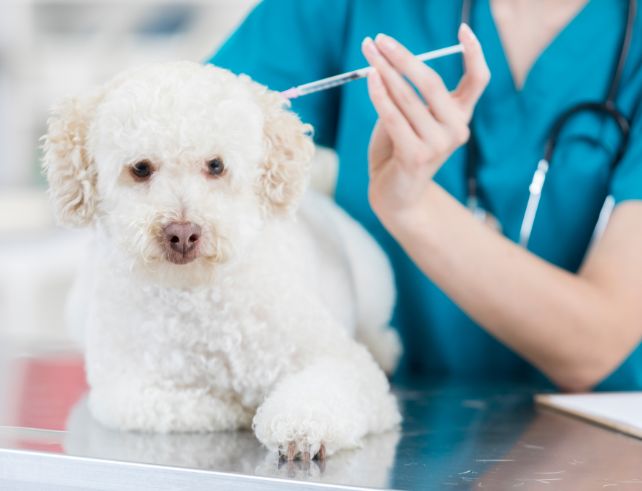Every pet owner loves their furry friends, and at Let’s Have Pet, we feel the same. Our goal is to give you the latest pet care advice. Today, we’ll talk about two key parts of pet health – vaccinations and deworming. We’ll explain why they’re vital, tackle common myths, and share tips to keep your pets in top shape.
Vaccinations: What They Do and Why They Matter

Vaccinations play a big part in your pets’ health and long life. A vaccine is a substance that teaches your pet’s immune system how to fight off certain diseases. It’s like giving your pet a sneak peek of a disease so that they know how to beat it if they ever come across it for real.
Just like in humans, pet vaccines are important for the health of both your pet and your community. They protect your pet from nasty illnesses like rabies and distemper in dogs, and a disease called panleukopenia in cats. They also help keep other pets safe, especially those who can’t get vaccinated due to health issues.
Clearing Up Myths About Vaccinations

Even though vaccines have clear benefits, some pet owners are unsure about getting their pets vaccinated. This often comes from misunderstandings and untrue stories about pet vaccines. One such story is that vaccines can cause autism in pets. Experts in pet health and science have proven this to be false.
It’s true that pets can have small side effects from vaccines, like a bit of a temperature or soreness where the needle went in. Big reactions are rare. The risk from these diseases is much bigger than the risk from the vaccines.
Deworming: What It Does and Why It Matters

Deworming, like vaccinations, is key for your pet’s health. Worms like roundworms, hookworms, and tapeworms can make your pet really sick if not treated. They can cause weight loss, a swollen tummy, being sick, loose poop, and in really bad cases, can even cause death.
What’s more, some types of worms can move from pets to humans. This means they can be a danger to you and your family. Regular deworming not only keeps your pet healthy, but it keeps your family safe too.
Clearing Up Myths About Deworming

One story that gets passed around about deworming is that pets who live indoors don’t need it. This is not true. Pets who live indoors can still get worms from places like the soil in potted plants, fleas, or rats and mice that might sneak in. You could even bring in worm eggs on your shoes or clothes. So, whether your pet stays inside or goes outside, regular deworming is a must.
Simple Tips for Keeping Your Pet Healthy

- Visit the Vet Regularly: Regular vet check-ups are key for your pet’s health. Your vet can give advice based on your pet’s age, breed, how they live, and health condition. They can also make sure your pet’s vaccinations and deworming are up-to-date.
- Know the Timings: When to get vaccinations and deworming can change. It can depend on the type of vaccine or worming treatment, your pet’s age, and their health. Usually, puppies and kittens need several rounds of vaccinations and deworming in their first year, followed by regular top-ups throughout their life.
- Look Out for Side Effects: Bad reactions to vaccinations and deworming are rare, but it’s good to keep an eye on your pet after the treatments. If you see any changes in how they act or feel, call your vet straight away.
- Live a Healthy Life: Regular exercise, good food, and proper cleaning can boost your pet’s overall health, making them stronger against diseases and parasites.
Here at Let’s Have Pet, we know that your pet is more than just an animal; they’re part of your family. Like any family member, their health matters. By understanding the importance of vaccinations and deworming, you can help protect your pet’s health.
We hope you find this article helpful in your journey as a pet parent. Owning a pet means looking after their health and happiness. So, let’s do our best to keep them safe, healthy, and happy! Read others

